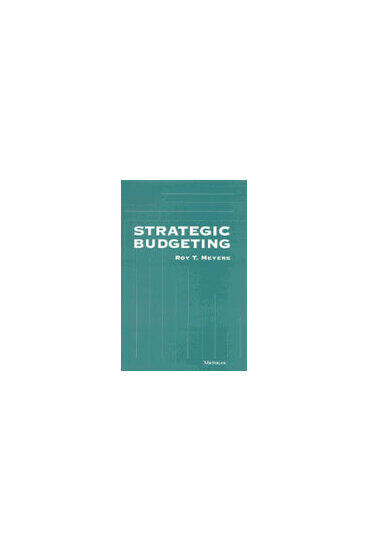Strategic Budgeting
Offers a new understanding of the source of federal budget deficits
Description
Strategic Budgeting offers a new way to understand how federal budget deficits developed. Rejecting the incrementalist theory of budgetary strategy, this study focuses on the micro level--the competitive process of budgeting for individual programs--to advance a theory based on the changing structural characteristics of the budgetary process itself. The book illustrates how advocates for spending have creatively taken advantage of flawed accounting practices to make costs less visible and documents how they designed programs to avoid budgetary controls. Strategic Budgeting also shows how controllers reacted to these tactics by improving accounting rules and budget procedures. The book concludes with practical recommendations for improving the process of budgeting for individual programs.
"[Meyers] spent much of the 1980s as an analyst for the Congressional Budget Office, and so he knows just about every budgeting gimmick there is to know. He traces how flaws in the government's budget data can lead to wildly incorrect assumptions, which in turn can be exploited by clever players with a stake in the budget." --National Journal
Roy T. Meyers is Assistant Professor of Political Science, University of Maryland, Baltimore.
Roy T. Meyers is Assistant Professor of Political Science, University of Maryland, Baltimore.

